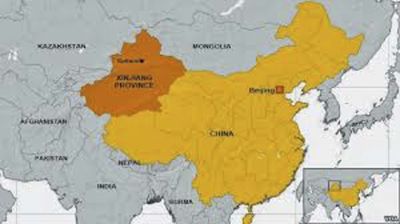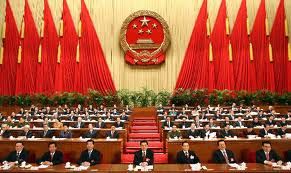
Dissident Muslim Militants in China Seek Separation
China may become the next Al Qaeda target if militant Uyghur separatists in the Xinjiang region’s Islamic clergy keep protesting.
Russia, Mongolia, Kazakhstan, Kyrgyzstan, Tajikistan, Afghanistan, Pakistan and India border the Xinjiang region. Its separatists prefer to call it East Turkestan. http://www.bbc.com/news/world-asia-china-26414016
The Xinjiang Province, China’s largest geographically, includes a population of almost 22 million, with more than half Muslim and about 43 percent of which share Uyghur ancestry. It holds undeveloped oil and gas reserves China sorely requires. In the 2,500 year written history of the region, it has been exchanged between numerous political dynasties, and since 1949 it has survived as an autonomous region within the Chinese empire.
Today many Uyghurs claim discrimination by other Chinese based on Uyghur ancestry . Two weeks ago at Kunming Railway Station in Yunnan, China, 10 black-clad militants wielding knives and machetes slashed and stabbed 164 people, of whom 34 died. http://thediplomat.com/2014/03/kunming-terrorist-attack-a-residents-perspective/
Uyghurs have been implicated in the Chinese press because East Turkestan flags found in the railway station and a video by Uyghurs before the attack warned Buddhists they were coming. Other brutal attacks in the region over the past 18 months have also been blamed on Uyghurs, despite protests from Islamic clerics alleging conspiracy. http://www.theepochtimes.com/n3/515882-china-blames-extremists-for-xinjiang-violence-with-sketchy-report/
Most recently the lost Malaysian Boeing 777 MH370 flight from Kuala Lampur to Beijing has been tied by Chinese investigators to Uyghur hijackers who have used similar tactics in other more local flights in the region. http://www.cnn.com/2014/03/18/world/asia/malaysia-airlines-plane/
To HFS analysts, the potential for civil war between separatist Xinjiang Muslims and majority government forces may produce unpredictable economic disruptions across China, particularly in the energy production sector.
What do you think?


